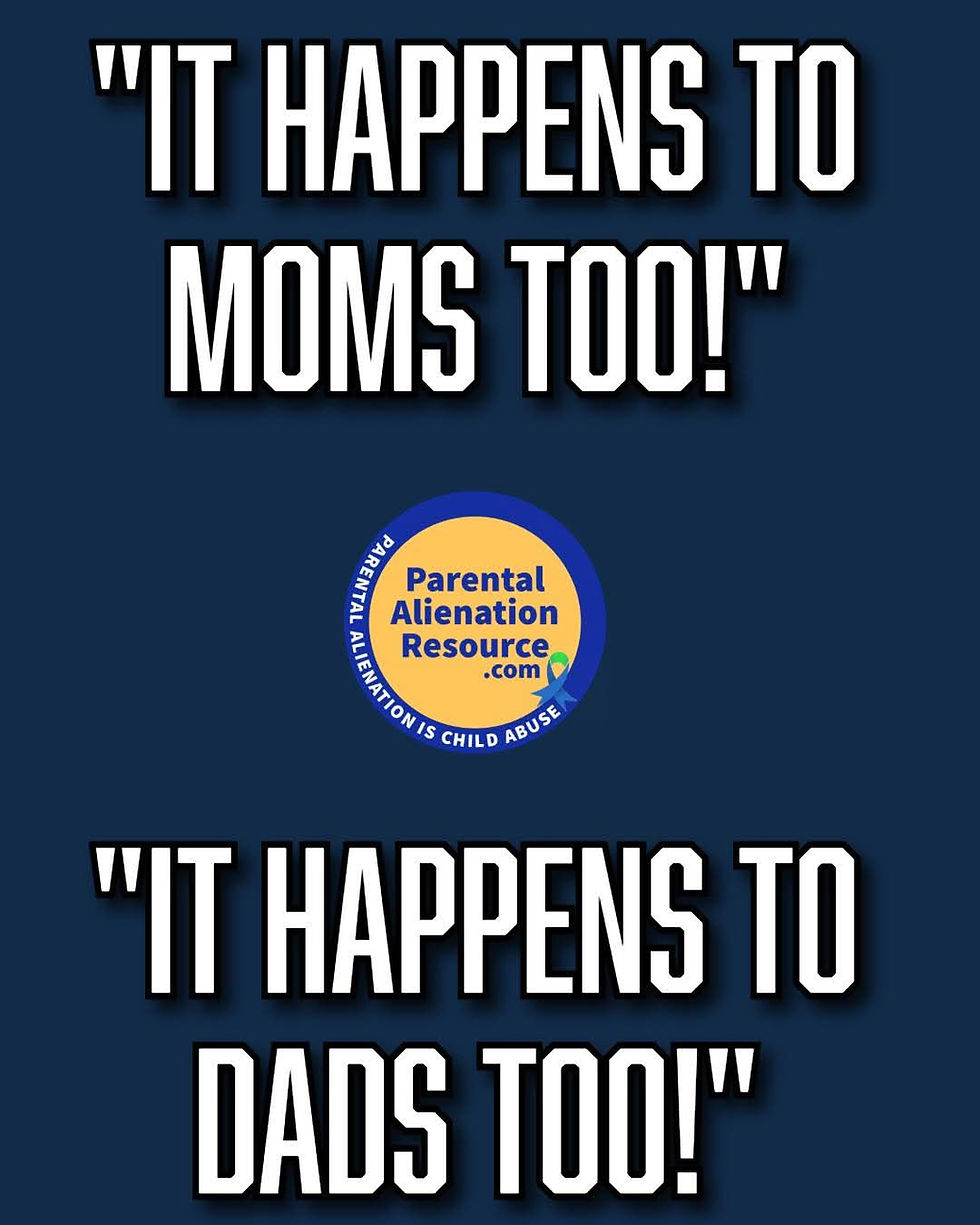"A Single Mother Protecting Her Kid From an Inconsistent Dad is Not Bitter."
- Parental Alienation Resource

- Oct 24, 2025
- 3 min read

It looks innocent enough. It sounds empowering. And it’s shared thousands of times by people who genuinely believe they’re defending children. But beneath the surface, this kind of message is one of the most manipulative and damaging narratives in modern parenting culture. It quietly rewrites what protection means, turning love into leverage, and care into control.
The word “protecting” is sacred. It taps directly into our primal instinct to shield children from danger. That’s why posts like this spread so fast, they’re emotionally bulletproof. No one wants to be the person arguing against “protection.”
But here’s the truth: In the family court world, “protecting” is one of the most misused words on the planet.
Parents, in this case mothers, are told that restricting access, withholding communication, or blocking parenting time can all be justified in the name of “protecting the child.” It’s a soothing cover for what’s often deep psychological harm.
It makes alienation sound noble. And once that narrative takes hold, it’s almost impossible to challenge, because to question it is to risk being labeled unsafe, unfit, or unsympathetic.
This phrase , “inconsistent dad” is quiet emotional warfare.
It’s a label that’s both vague and permanent. It doesn’t define what inconsistency means, it just implies unreliability. And in family court, that implication is everything.
A father can be denied time with his child due to manipulation, false allegations, or delays he didn’t cause, yet the very distance created by that system becomes “proof” that he’s inconsistent. He’s trapped in a loop where absence equals guilt. The less he’s allowed to show up, the more “evidence” there is that he doesn’t. It’s not about safety. It’s about control, and the system rewards the parent who controls the narrative best.
Family court professionals, attorneys, guardians ad litem, and therapists, have learned to thrive on these storylines. They sound righteous, they trigger emotion, and they generate endless billable hours.
“Protective mother.”
“Traumatized child.”
“Unreliable father.”
These are not diagnoses. They’re marketing tools.
When a parent weaponizes the word “protect” to justify alienation, it feeds the machine. Therapists get sessions.
GALs get hours. Attorneys get endless motions. And the child, the one everyone claims to be protecting, gets caught in the middle of a war that never needed to exist.
Alienating parents rarely see themselves as abusers.
They see themselves as saviors. When you believe you’re protecting a child, every act of control feels justified. Every lie becomes “necessary.” Every manipulation becomes “safety.”
And because the public conversation around “inconsistent dads” normalizes this language, these parents are rarely challenged. They are validated. Applauded. Encouraged to continue cutting off contact because “children need stability.” But stability without both parents isn’t safety. It’s suppression.
It teaches children that relationships are conditional and love is unsafe.
Protection is not the act of isolating a child from one parent.
It’s the act of creating safety with both. A truly protective parent doesn’t erase the other half of their child’s identity, they help that child hold space for both halves.
Protection means truth. It means boundaries without brainwashing. It means cooperation without coercion.
Anything else is possession, not parenting.
If honesty were allowed in the algorithm, this meme might say something else entirely.
“Protecting a child means protecting both their parents’ place in their heart.”
Every time a meme like this spreads, it reinforces a system that assumes mothers protect and fathers must prove.
That men must earn access to their own children, while women are presumed righteous by default. It fuels a courtroom culture where “best interest” means “whatever story sounds safer.”
And it’s why equal shared parenting and family court reform are so critical. Because real protection doesn’t come from manipulation. It comes from law, fairness, transparency, and the presumption that every fit parent deserves to parent.
The truth is simple: A mother protecting her child from true danger is heroic. But a mother "protecting" her child from their father, without evidence of harm, is not protecting they're posessing. And children deserve better than that lie.









Comments